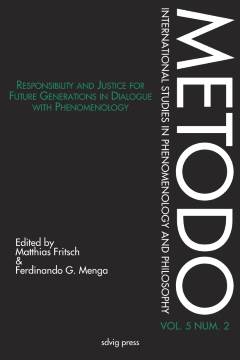"The poor will never cease"
theological textual configurations of time, responsibility and justice
pp. 161-183
Abstract
Theological ethics, particularly Christian theological ethics, is very well-equipped both to treat the interests and needs of future generations as a genuine and pressing concern – and also to evade some of the questions they pose about temporality, by appealing to judgement beyond history. Phenomenological approaches to the question of future generations are important as a counterbalance to this tendency in theological ethics, insofar as they force us to remain with, and wrestle with, the relation to future persons as future. In this article I show that drawing on phenomenological approaches, in order to attend to temporality, produces an account of justice and responsibility to future generations that is more adequate theologically, as well as ethically. Attending to how the other, the future and the imperative of justice interrelate yields an approach to theological ethics that does not need to assume for the ethicist the God’s-eye view – the view from outside time, narrative or interpersonal encounter – and that is thus able to grapple with the core questions raised by bringing future generations into ethics.
Publication details
Published in:
Fritsch Matthias, Menga Ferdinando G (2017) Responsibility and justice for future generations in dialogue with phenomenology. Metodo 5 (2).
Pages: 161-183
Full citation:
Muers Rachel (2017) „"The poor will never cease": theological textual configurations of time, responsibility and justice“. Metodo 5 (2), 161–183.


